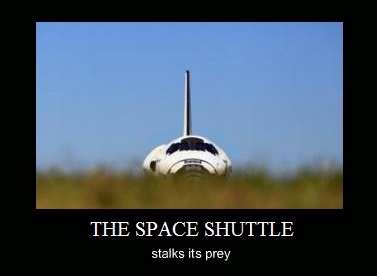Amazing happenings in space, other than July's final Shuttle launch...
January: Royal Pain in the X-Files?! PSSRI scientists announced that they expect humanity to find an alien civilization in the next two decades or sooner, and advised governments of all nations, supervised by UN committee, to draft action plans for First Contact: "Should it turn out that we are not alone in the Universe, it will fundamentally affect how humanity understands itself—and we need to be prepared for the consequences."
Unsurprisingly, one evolutionary palaeo-biologist insisted Earth must prepare for the worst. Hawking felt vindicated.

September: Einstein set a speed limit and it seems some physicists think neutrinos are breaking it, so are we gonna have a problem with that, Theory of Special Relativity? If Faster-Than-Light particles are found, we will see a whole lot of excitement and controversy in the world of particle physics. However, the only thing that shocked me was that it was NEWS to so many.
The initial theory was put forth by a Portuguese cosmologist named João Magueijo in a fantastic book called "Faster Than The Speed of Light" (2003). He was clearly ignored, but espoused the theory of Variable Speeds of Light (VSL), insisting that during creation and development of the Universe, light waves have fluctuated. Most young physicists know the work, and those who comprehend quantum mechanics are very familiar... but trying to get the Old Guy Contingent to embrace new parameters of classical physics is like buying your 20-year-old canine an iPhone.

October: Three scientists who watched stars explode and deduced from these supernovae that the universe is expanding at an increasing rate shared the Nobel Prize in Physics. Dark energy, anyone?
November: Mars500 "landed on Earth" after 520 days of simulation inside the "spaceship" in which they traveled to the red planet, frolicked upon the surface of the red planet, then flew home. Can humans cope with the emotional stress and isolation of long duration-spaceflight? They emerged, pale, grinning, and still sane. Radiation and Micro-Gravity sims of the same duration would be harder, methinks.
December: HISTORY, baby! Astronomers discovered Exoplanet Kepler-22b, the first planet outside the solar system orbiting in the Galactic Habitable Zone (GHZ) around its star. Could life potentially exist? With each passing year, we clever little hairless apes get closer and closer to being able to detect such evidence!


































































